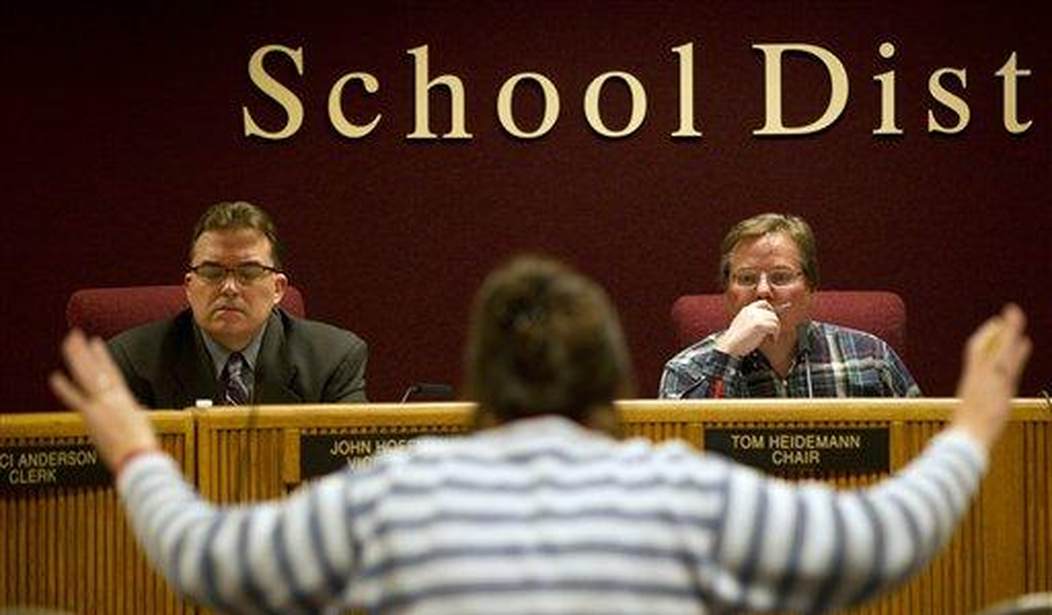Throughout the presidency of Donald Trump, voters living in the suburbs backed away from Republican candidates, costing the GOP their traditional base of power.
Pundits who blame Trump for this state of affairs are missing the big picture. For the most part, Democrats pushed issues near and dear to the hearts of suburban mothers; child care, health care, and education resonated with female voters better than GOP issues like national security.
Plus, Republicans ran a gaggle of lackluster candidates—too many males, not enough people of color.
But the GOP is looking to fix the problem, starting in Virginia. They have an attractive gubernatorial candidate in Glenn Youngkin, a man who coached his kids’ sports teams and started a church in his basement.
He also happens to have spent 25 years at the private equity firm The Carlyle Group, rising to become its CEO. Suburban voters can relate to Youngkin despite his wealth because he speaks their language about bread and butter issues. And for Youngkin, it begins and ends with education and who decides what children should be learning.
And since winning the GOP nomination in May, Youngkin has largely avoided the intra-party fights that have plagued Republicans in other states, where candidates compete to be the most Trumpian option. Virginia Republicans have folded in behind Youngkin because “we’ve lost for so long that there’s a lot of connective tissue between the base and the middle of the party,” said Zack Roday, a Republican consultant based in Richmond. “Folks want to win.”
Instead, Youngkin has seized on parents’ anger over Covid-related school closures, as well as tapping into conservative energy against “critical race theory,” an obscure academic legal theory that’s been used by activists to attack teaching about race in schools.
Well, it’s a lot more than that, and Politico knows it. No one is opposed to teaching about race or the history of race and racism in America. That’s a deliberate misrepresentation of the facts—something the left does very well.
It’s something that Youngkin’s opponent, Democrat Terry McAuliffe, is an expert at. But McAuliffe has completely misread the Virginia electorate since the campaign began, behaving as though he was actually running against Donald Trump. Unfortunately for him, Virginia voters have no intention of “nationalizing” the race by making Trump a major player.
Even so, McAuliffe’s campaign has drilled into Youngkin’s ties to Trump, an effort to nationalize the race in the same way California Gov. Gavin Newsom effectively linked his GOP opponent to Trump during a failed recall effort this summer. McAuliffe’s campaign went after Youngkin for Trump’s endorsement and attacked him for saying that Trump “represents so much of why I’m running.” Earlier this week, McAuliffe’s campaign cut an ad of Youngkin supporters pledging allegiance to a flag that was carried during the Jan. 6 Capitol insurrection. (Youngkin called the act “weird and wrong.”)
Using Trump as a bogeyman is losing its luster. Newsom didn’t “defeat” Larry Elder because of Trump or anyone else. In fact, he didn’t defeat Elder at all. The California voters voted not to recall Newsom. There’s a huge difference between defeating the recall petition and defeating Elder by linking him to Trump—which is nonsense.
But Democrats are thinking that the same formula that helped them make massive gains in the suburbs of major cities during the Trump years will allow them to expand their majorities in 2022.
In addition to tying Trump to Republicans, Democrats are leaning hard on vaccine mandates, paid family leave and abortion rights as key issues to keep suburban voters from swinging back to the GOP. They’re also bringing in Democratic heavyweights, including Barack Obama and Stacey Abrams, to stump for McAuliffe and drive up enthusiasm. Willett, the Democratic delegate who’s running against Kastelberg, acknowledged that two months ago, he worried that “voters didn’t have the same drive” as they did during the Trump era.
“The [Texas] abortion law has really motivated folks because it’s really scared people, showing them what happens with a single vote of a legislature,” Willett said. “For the folks who were lacking motivation are motivated again. Trump or Texas, whatever you want to call it, they’re concerned.”
That’s more than wishful thinking. Suburban parents—not just white parents, but all parents—are angry at Democrats for standing with school boards who refer to them as “domestic terrorists” and teachers who call their children “oppressors.” It’s a fantasy to believe that those issues don’t resonate more with parents of school-age children than abortion rights.
Related: Youngkin Hits Back at McAuliffe’s ‘Out of Context’ Claim in Virginia Governor’s Race
Republicans in Virginia are far more nuanced in their approach to winning voters, now that they can no longer take the suburbs for granted.
“No question Republicans are going to claw back some suburban voters post-Trump,” said Tom Davis, a former Republican congressman who represented northern Virginia, “but suburban voters were already moving away from us before Trump.”
“Democrats have been steadily dating the suburbs, but they’re not married,” Davis added.
Demographically, the suburbs had already been changing. But the people of color moving in want the same things for their kids that white parents want. The issue of CRT and local control of school boards may be showing everyone that when it comes to educating their children, parents are, indeed, colorblind.










Join the conversation as a VIP Member